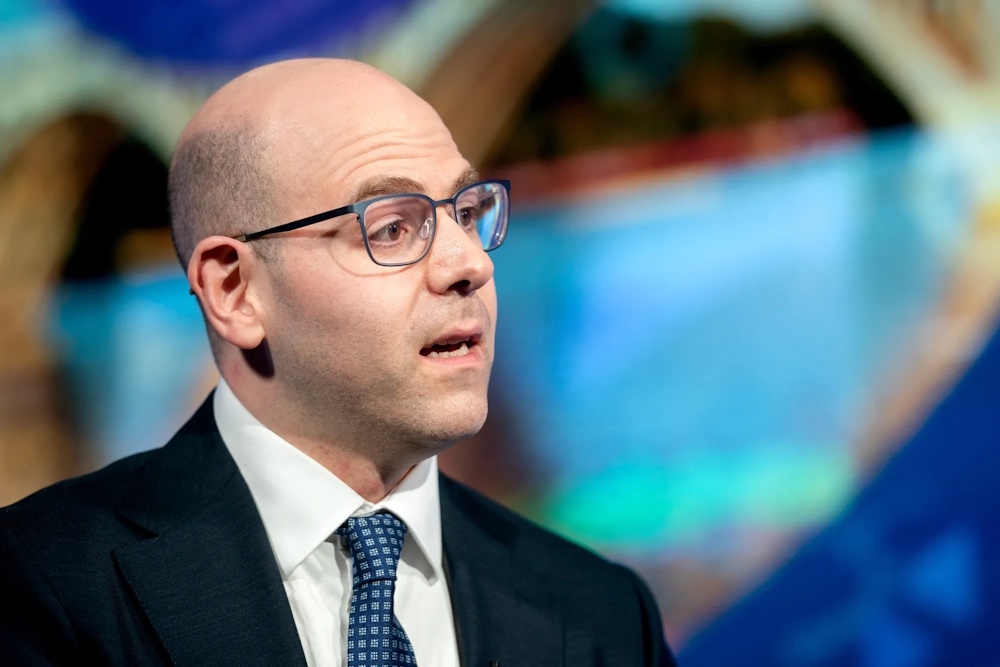
Federal Reserve Governor Stephen Miran, a strong supporter of President Donald Trump, stated on Monday that central bankers are underestimating the extent of the pressure that interest rates are exerting on America’s labor market. “I view policy as very restrictive, (and) believe it poses material risks to the Fed’s employment mandate,” Miran stated during his inaugural address in his new position, at an event in New York. Miran, who formerly led Trump’s Council of Economic Advisers, has stepped away from that role to fulfill a vacant term on the Federal Reserve’s Board.
Last week, the Federal Reserve reduced borrowing costs for the first time since December, a move aimed at preventing a decline in the labor market, as stated by Chair Jerome Powell during a post-meeting news conference. However, Miran asserts that the Federal Reserve has significant ground to cover. In his speech, Miran contended that the neutral rate of interest — a theoretical benchmark for borrowing costs that neither stimulates nor dampens economic activity — is, in fact, lower than the prevailing consensus among economists indicates. This suggests that, in his perspective, current interest rates are imposing excessive pressure on the economy. Miran stated that “some” are not adequately taking into account how Trump’s policies — including his tax and spending bill as well as the administration’s persistent enforcement on immigration — may be exerting “strong downward pressure on the neutral rate.”
Miran posits that the Fed’s benchmark lending rate ought to be “almost 2 percentage points lower.” That constitutes eight quarter-point reductions in interest rates, or alternatively, four half-point reductions. The Federal Reserve generally reserves substantial rate reductions for periods of economic distress. Miran examined the significance of the Taylor rule in the context of monetary policymaking, serving as a framework for central bankers that incorporates the neutral rate, inflation, and indicators of economic performance. He articulated the potential impact of Trump’s policies on the formulation of the Taylor rule within the current economic landscape. In a moderated discussion, Miran recounted his initial experience at the Federal Reserve meeting last week, emphasizing, as he had in a recent media interview, that it was “cordial, it was collegial, it was friendly, it was respectful, and I was very appreciative of that,” Miran stated. He stated that his speech on Monday represents his effort to start convincing his colleagues to reduce rates at a significantly faster pace.
“There’s a reason why policy rates are excessively elevated. “It’s because there’s been substantial changes in immigration, there’s been substantial changes in tariff revenue, and these need to be incorporated into our economic models because they’re relevant for how monetary policy is set,” Miran stated. “That’s how I’m going to approach my time at Federal Reserve: to lay out my economic arguments as clearly and transparently as I can, and hope to persuade people by the force of the economics,” he stated. During a distinct event on Monday, Cleveland Fed President Beth Hammack expressed her openness to unconventional perspectives on the economy in response to a query. “I appreciate unconventional perspectives. I appreciate the opportunity to engage with a diverse array of individuals and their unique viewpoints.
“And for me, if I was just talking to people who got their way, I think it may be more comfortable, but I’m not learning anything,” Hammack stated. “When there are individuals present, be it in the context of monetary policy discussions or among our research team with diverse viewpoints, I genuinely appreciate that dynamic, and I make a concerted effort to pay close attention,” she remarked.

